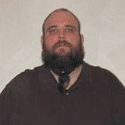|
Craigslist hookups can absolutely be an efficient way to network, depending on your area and the demographics you're attracted to. I'm in Austin and I typically have sex with cuddly bearded guys in their mid 20's to late 30's, which is a description you may recognize as fitting every single coworker you've ever had. But really, the takeaway is that you should always be networking. If you meet a lot of people through any avenue, and you always include your field in the conversation, you're bound to find a few people who could use your skills. It's so easy to do, too. "What do you do?" is such a natural getting-to-know-you question. And if you mention that you're looking for work, they may know someone.
|
|
|
|

|
| # ? Jun 3, 2024 18:13 |
|
Gazpacho posted:- "I need the money." (So does every applicant.) Just to qualify this, the fact that the salary is an important factor to you is not some deep, dark secret. It's just not a good answer to that particular question.
|
|
|
|
I've been revising my resume lately. I've heard a lot of conflicting advice, so I figure I could use some more people weighing in, to maybe get a better feel for things. If anyone has a minute to look my resume over, here it is. https://docs.google.com/document/d/1xAvZfwfk5LYZbH2OQczTBUEk77HVNMos0L8cgxckfqE/edit?usp=sharing That's pretty much exactly what I send to employers, only I leave my address on it. I just download it in .docx format. That's acceptable, right? So far the only website I've seen that has a problem with it is dice.com.
|
|
|
|
I sent a thank-you email to that recruiter and I got this back today: "Actually, the VP of Engineering said he would be happy to speak with you, more of a meet and greet, he has helped a number of technical professionals at your stage in your career. He also will be a great gauge of overall company and team fit." She said likes my "tenacity." Do things just get weird when you deal with smaller companies/startups?
|
|
|
|
Zero The Hero posted:I've been revising my resume lately. I've heard a lot of conflicting advice, so I figure I could use some more people weighing in, to maybe get a better feel for things. If anyone has a minute to look my resume over, here it is. Aside from a lot of formatting wonkiness and tabbing issues, I don't think it's a good resume content-wise. Why do you have related coursework listed when you've been out of school for several years? Your GPA should disappear too, it's not particularly high so I don't see how it helps. You might want to list when you graduated. The majority of the space on your resume should consist for 3-5 bullets for each of your listed jobs. What did you do? What did you learn? Who did you work with? How did the companies you work for benefit from your presence there? Right now, I get literally zero sense of how you were valuable to Verizon or the Wellness Center. I would also expand your projects section. These open-source projects you contributed, list them and enumerate your specific contributions. Overall, you need to a better job of pointing out how you can add value to a company and what skills you actually possess that they might desire.
|
|
|
|
Zero The Hero posted:I've been revising my resume lately. I've heard a lot of conflicting advice, so I figure I could use some more people weighing in, to maybe get a better feel for things. If anyone has a minute to look my resume over, here it is. - Your indentation feels weird. - Put at least a year on when you got your degree. Seems odd to have dates for work but zilch for schooling. - If you didn't get a degree from that second university, why list it? Seems pointless. - You really need to flesh out your work experience with details. Think of it from the employer's perspective; what kinds of things did you do that would be beneficial to them? Make it sound all businessy. - Related courses section is just, like, a list. Feels generic. I would try to give some details; how did you use C#, what did you learn, how would it apply to a business, etc. - "the understanding of development processes" sounds like something a sweatshop Indian IT outsourcing firm would write. - "Contributed to open source projects through the internet" - Care to be specific? You seem to have a serious problem with details. - What's a pseudo restaurant?
|
|
|
|
Zero The Hero posted:I've been revising my resume lately. I've heard a lot of conflicting advice, so I figure I could use some more people weighing in, to maybe get a better feel for things. If anyone has a minute to look my resume over, here it is. Everyone else has already covered the things I was typing up... take a look at the formatting on my resume (heavily redacted, of course). It's not a work of art by any means, but I've actually received compliments on it a few times. [edit] I just found something very stupid on my resume, thank you! There is no "C# 4.5"; there's .NET 4.5 and C# 5. And it's like the first thing on there, too. Talk about sending up red flags. New Yorp New Yorp fucked around with this message at 01:58 on Aug 3, 2013 |
|
|
|
Here's my current resume: https://www.dropbox.com/s/5l6fmpo35owbmq6/anon_resume.pdf Now I haven't taken a critical look at this since college, and I'm not holding it up as an ideal. I do think it's better, in terms of format, style, etc. than the majority of resumes I see (granted, this isn't a very high bar). I still would like to do something besides a basic list for the electives and skills section (possibly removing the electives since I've been out of college a couple years now). I should also expand the description of my current job, which is by far more relevant than anything else on the page, and reduce the section for college experiences, probably by removing the teaching assistant jobs, as they're hardly relevant any longer. edit: On second thought it'd probably be a good idea to add some example resumes to the OP. Everyone who has a non-terrible resume, feel free to post it and I'll add it. Ithaqua: Would it be possible for you to un-redact some of the descriptions of your work experience and just anonymize bits of it? I think seeing examples of how to word and phrase things is important for people learning how to craft a resume. edit2: Zero, are you sure you want to use Times New Roman? Personally I hate TNR and think it's aggravating on the eyes. For serifed fonts, I'd advise either Garamond (what you see on my resume there, my technical writing prof suggested it when she was helping me with my resume) or Sylfaen, which is a personal favorite. Cicero fucked around with this message at 02:31 on Aug 3, 2013 |
|
|
|
Cicero posted:Here's my current resume: https://www.dropbox.com/s/5l6fmpo35owbmq6/anon_resume.pdf And yeah, some resume examples in the OP is a great idea.
|
|
|
|
RICHUNCLEPENNYBAGS posted:So if it ignores headers how does it know, say, which part is your education and which is your work experience? If you REALLY want a detailed answer, read this: http://www.daxtra.com/parsing.html This white paper compares and contrasts various resume/CV parsing techniques. Disclaimer: I work for a start-up that sells recruiting software, and we do not use/integrate Daxstra CVX for resume parsing. I don't know how good Daxstra is at resume parsing. We do use Daxstra Search, but that is irrelevant for this discussion. Speaking from experience, most recruiting firms only care for resume parsing that does skills and candidate contact info parsing well. Stuff like VISA status is something the recruiter would see after they look at your resume, and wouldn't be a primary factor when searching for candidates. Candidates with a VISA status tend to be sourced differently, anyway.
|
|
|
|
Cicero posted:Take all the following with a huge grain of salt: http://xkcd.com/149/ I agree completely with everything you said, and gave Zero some advice via PM.
|
|
|
|
HondaCivet posted:I sent a thank-you email to that recruiter and I got this back today: I don't know what you find weird about this interaction? And, who likes your tenacity? Her or the VP of Engineering? Either way seems positive to me...
|
|
|
|
Z-Bo posted:http://xkcd.com/149/
|
|
|
|
Cicero posted:I was re-reading my post and when I read "Contributed to open source projects through the internet" I got a funny mental image of the other ways one might contribute to an open source project. Carrier pigeon, perhaps?
|
|
|
|
I've added the following section to the Appendix (second post):quote:Example Resumes Volte posted:How about working at a company that develops open source software? Cicero fucked around with this message at 20:29 on Aug 3, 2013 |
|
|
|
Cicero posted:I was re-reading my post and when I read "Contributed to open source projects through the internet" I got a funny mental image of the other ways one might contribute to an open source project. Carrier pigeon, perhaps? Why not both? http://www.ietf.org/rfc/rfc1149.txt
|
|
|
|
Cicero posted:Yeah I thought about a work LAN afterwards. Oh well. Either way, the important part is "contributed to open source software". Where it happened doesn't matter very much.
|
|
|
|
HondaCivet posted:She was kind of weird, I think she was maybe trying to be helpful in some weird way? It was a damned confusing phone screen. She kept grilling me about what I was looking for and I don't think she liked my answers so she didn't let up. At the end she stopped talking about the company and asked more broadly about what I was looking for and offered to point me in the right direction. Kind of. She wanted to call me right away after she got my resume but they're not even looking for entry/mid level engineers right now? I'm just . . . I just don't know what the hell happened. If they are not looking for entry/mid level engineers, it means one of two things: 1) Her delivery team Lead has no idea what she is working on, or doesn't restrict her, or she is trying to generate her own line of business. 2) Recruiting is all about relationship management, so a young recruiter (typically those who recruit young developers) will try to find workers who as she climbs the ladder will climb the ladder with her, and give her bigger and better company contacts. 3) She is so low on the totem pole as a recruiter that she has no role in Ends Management and making sure contractors the firm already works with remain employed, so you are very valuable to her even if she has no openings for you. [Edit: And, her delivery team lead should be looking at the market place. If the time-to-fill spreads on developer roles are greater than QA testers, I might tell my team to get me as many candidate names as possible, and that for this recruiting cycle we have a candidate name generation target we have to reach to increase our closing volume.] Also, you're over-thinking this. Be honest, but be smart. Articulate yourself well. There are many ways to phrase something, and negative viewpoints. If you sound jaded it indicates a negative viewpoint and that you aren't focused on your future so much as escaping your past/present. Your prospective employer is not a refugee camp. Also, take notes every time you talk to a recruiter. Learn not only what questions they ask, but how. Record the phone call and play it back, ideally a week later so you distance it appropriately. Z-Bo fucked around with this message at 22:09 on Aug 3, 2013 |
|
|
|
it is posted:Craigslist hookups can absolutely be an efficient way to network, depending on your area and the demographics you're attracted to. I'm in Austin and I typically have sex with cuddly bearded guys in their mid 20's to late 30's, which is a description you may recognize as fitting every single coworker you've ever had. I read this thread backward, and when I first read this post, I thought you were joking about Craigslist hookups. Then I read about hot tubs and interviewing naked. But your advice about networking is great. I always network. I have a huge, odd social network. I developed most of my industry contacts through user groups and IRC chats. I developed some venture capitalist contacts via posting on their blogs regularly and giving them deep, constructive criticism. Successful people recognize the wisest thing you can do is pursue wisdom, and with all your wisdom, develop good judgment.
|
|
|
|
As a Junior at Stanford, I'll be seeking to get into an internship next summer, so I need to write up a resume to hand in during on-campus career fairs. So far I don't have any CS/programming experience aside from my classes. Should I instead elaborate on the classes I've taken so far and the skills I learned from them? Honestly, I don't really know who would want me when I'm surrounded by ridiculously talented people who have been coding since before high school.
|
|
|
|
quote:Should I instead elaborate on the classes I've taken so far and the skills I learned from them? quote:Honestly, I don't really know who would want me when I'm surrounded by ridiculously talented people who have been coding since before high school. edit: \/\/\/ Being at Stanford is obviously a huge plus, but ultimately nobody is gonna hire him for software development if he can't code, either displayed in github or in an interview (or both, ideally). Having Stanford on his resume will help get him interviews, but it won't automatically grant him offers. \/\/\/ Cicero fucked around with this message at 02:15 on Aug 4, 2013 |
|
|
|
UnfurledSails posted:As a Junior at Stanford, I'll be seeking to get into an internship next summer, so I need to write up a resume to hand in during on-campus career fairs. So far I don't have any CS/programming experience aside from my classes. Should I instead elaborate on the classes I've taken so far and the skills I learned from them? You're at Stanford. You'll be fine.
|
|
|
|
Cicero posted:edit: \/\/\/ Being at Stanford is obviously a huge plus, but ultimately nobody is gonna hire him for software development if he can't code, either displayed in github or in an interview (or both, ideally). Having Stanford on his resume will help get him interviews, but it won't automatically grant him offers. \/\/\/ Not necessarily true; at least the bit about github or coding during interviews. The bar is considerably lower for internships, in my experience; both of the companies I interned with in college hired me based on a 30 minute on campus interview at a table in a room full of other people. I ended up doing my masters thesis with one of these companies. This is not to say that he shouldn't do the things you suggested, but the whole "EVERYONE MUST HAVE TONS OF poo poo ON GITHUB" idea is tiresome
|
|
|
|
Dude you're a Junior at Stanford and you haven't already been in one failed startup? What is wrong with you? (Only a half-joke, because seriously what are you doing? You are competing against other STANFORD computer science students so while you'll probably find a job based on the name alone, considering it's STANFORD you should probably be doing something by now.)
|
|
|
|
I suspect based on your posting history (with your algorithms class being hard) that you're not very good at programming, and also not super-duper-smart. Your main concern should be to get better at programming. This is accomplished by doing programming. Figuring out what to code is a hard problem for some people -- I certainly had that problem, and never actually made anything interesting while in college. My main accomplishments were: making XMonad support splitting the screen both vertically and horizontally instead of just horizontally (causing dons to bitch me out for what a horrible ugly pile of poo poo my code was), and... making a monad transformer based variant of Parsec, back when none seemingly existed, which proceeded to be used by nobody. (That was a whole 2 days of work, 5 hours per day. But it was on my resume! It was the second largest amount of time I had spent on a non-work-related programming project at that point in my life, and the most on a non-school project.) I had a hard time figuring out what to work on, and I had a hard time working on it. So what I did instead (not with intentionality, this is just what ended up happening) was that I taught myself Haskell, taught myself Scheme and other programming languages, thought a lot about programming language design, and probably got ahead of the game on high level software design instincts and on generally not being a junior programmer software design catastrophe scrublord, without writing too much code. If you look at some other people, such as forums poster Scaevolus, you can see a lot of actual code written, and he was a much, much better programmer out of college and in college than I was at graduation. shrughes fucked around with this message at 10:28 on Aug 4, 2013 |
|
|
|
UnfurledSails posted:As a Junior at Stanford, I'll be seeking to get into an internship next summer, so I need to write up a resume to hand in during on-campus career fairs. So far I don't have any CS/programming experience aside from my classes. Should I instead elaborate on the classes I've taken so far and the skills I learned from them? What skills did you learn? I also read your posting history and saw that you were planning to learn about computer security this summer. How is that going? That said, Sam is right. Program as much as possible. Try to take breaks while doing it. You probably aren't used to how unhealthy it is to sit down for 8 hours. I typically get up once an hour using a phone reminder. Here is a simple challenge project for you, if you don't have any. Play with D3.js, a data visualization library, and make some libraries that encapsulate common charts and graphs. Or at least read code others have done. Edit: Here are some skills to learn. You don't need a github portfolio, but you should learn what version control systems are and how to use them. The best way is to be involved in a github project, of course, and submit patches.  You should also learn about testing techniques and various libraries. Ask on here what the best unit testing library is for your favorite language. Honestly, after working in industry for five years, I can't tell you how excited I would be to talk to a kid in college who loves writing tests for his code. So many "senior developers" still have no experience testing, which is a joke. You should also learn about testing techniques and various libraries. Ask on here what the best unit testing library is for your favorite language. Honestly, after working in industry for five years, I can't tell you how excited I would be to talk to a kid in college who loves writing tests for his code. So many "senior developers" still have no experience testing, which is a joke.
Z-Bo fucked around with this message at 14:20 on Aug 4, 2013 |
|
|
|
Honestly if some scrub college graduate ever comes up to me all eager to talk about how much he loves testing his code, I'm going to punch him in the face.
|
|
|
|
Cicero posted:Yes. But more importantly, you should start coding on your own yesterday. Thanks. It's true that there are many resources, but it can be hard to find that you can understand and speaks to your level. Fortunately I've found a few, and started learning how to work on git (and other version control systems). I've worked with mercurial before so I'm catching on quickly. Z-Bo posted:What skills did you learn? Just off the top of my head: Worked with Java, C++, and C. The first class was mostly about good programming practices, object oriented design, data abstraction and modularity. Then went on learning how to code fundamental data structures, including recursive stuff like linked lists, trees etc. Taken the introductory systems class in which I dabbled in some assembly, memory optimization and management as well as performance optimization stuff. Wrote a heap allocator in the end for the final assignment. Aside from that, taken a few math based courses that focus on writing proofs, grammar, regular expressions, Turing machines and the like. Currently about to complete an into to algorithms class that gave me an arsenal of methods to solve sorting, selection and insertion problems and analyze its worst, average and best case behavior. Divide and conquer, randomization, greedy algorithms, dynamic programming etc. Z-Bo posted:I also read your posting history and saw that you were planning to learn about computer security this summer. How is that going? That took a backseat when I realized I was falling behind my classes. Now that it is under control I actually have time to work and worry once more. shrughes posted:Honestly if some scrub college graduate ever comes up to me all eager to talk about how much he loves testing his code, I'm going to punch him in the face. Great now aside from getting an internship I must also worry about getting punched in the face
|
|
|
|
Don't worry, shrughes has squirrely little arms, it won't hurt much 
|
|
|
|
Otto Skorzeny posted:Don't worry, shrughes has squirrely little arms, it won't hurt much Not actually true
|
|
|
|
Steve French posted:Not actually true
|
|
|
|
I will say that if you want a near-guaranteed job, learn about security. This is an extremely hot field right now and companies are hiring very very aggressively. There are some great training tools online (since universities are typically pretty poor at teaching security, how is that you can take a systems programming class in C and come out of it without ever hearing the term 'buffer overflow'?). I'd recommend looking at OWASP, their Top 10 and learning through tools like WebGoat. Mobile is a huge area right now and there is a lack of skilled people when it comes to MobileSec. I imagine this is specially true of Blackberry 10 and Windows 8 Mobile. Something else that has been a huge help for me has been Safari Books Online. I pay 40 bucks a month for access to basically every computer-related book ever and it's awesome. Any time I encounter an unfamiliar technology, I start reading a few books about it and within days I know enough to start mucking around. I love it and it's well worth the money to me. If you're in school, your institution may have a subscription you can use already.
|
|
|
|
bonds0097 posted:How is that you can take a systems programming class in C and come out of it without ever hearing the term 'buffer overflow'?). Wow really? It was literally the first example we were given in the first systems class I've taken (to show how "cool" systems can be). How can that even happen?
|
|
|
|
UnfurledSails posted:That took a backseat when I realized I was falling behind my classes. Now that it is under control I actually have time to work and worry once more. 1) Don't "worry". It's unhealthy. If you have free time to worry, you're not keeping busy enough. 2) What was your plan for learning more about security? There are so many aspects of security. In college, I participated in a one-of-a-kind Birds-of-a-Feather monthly discussion group about security, and we covered topics from implementing nagios for monitoring and alerts (which is now the de facto standard), puppet for ensuring proper system configuration, OSSECHIDS (intrusion detection), packet sniffing (wireshark, winpcap, etc.), steganography, object capability security, open source feeds that could be worked into an SIEM architecture, and leveraged to detect compromised machines by identifying outbound network traffic to malware command and control architectures, open source tools that in turn implement said ideas, etc. 3) Bonus: Get a rabies shot to protect yourself when Sam punches you in the face with his squirrel arms. While waiting in line at the doctor's office for your shot, read about unit testing on your mobile phone. If you have any questions about security, just ask me, if I don't know the answer, I'll be happy to forward you to one of my friends who does.
|
|
|
|
bonds0097 posted:Something else that has been a huge help for me has been Safari Books Online. I pay 40 bucks a month for access to basically every computer-related book ever and it's awesome. Any time I encounter an unfamiliar technology, I start reading a few books about it and within days I know enough to start mucking around. I love it and it's well worth the money to me. If you're in school, your institution may have a subscription you can use already. Good suggestion. A better suggestion is to join the ACM (Association for Computing Machinery) as a student member. It is 20$ for the most basic membership, and looks good on a resume. Plus, the $42 membership fee includes Microsoft DreamSpark Premium access, which is an insanely good deal for college students. One of the best programmers I know, a fellow goon, bought a membership when he was a Political Science major, just so he could get access to Visual Studio and other great tools at the student rate. https://campus.acm.org/public/qj/quickjoin/qj_control.cfm?form_type=Student http://learning.acm.org/ also gets you access to additional courses which you can use to refine your skills, and will rival or exceed any training materials at Fortune 500 companies.
|
|
|
|
Z-Bo posted:Good suggestion. A better suggestion is to join the ACM (Association for Computing Machinery) as a student member. It is 20$ for the most basic membership, and looks good on a resume. As someone who has been an ACM student member for years and had it listed on my resume when applying for numerous jobs, trust me, no one gives a poo poo if you're in ACM. As you mentioned, any rear end in a top hat with $20 can join.
|
|
|
|
bonds0097 posted:I will say that if you want a near-guaranteed job, learn about security. This is an extremely hot field right now and companies are hiring very very aggressively. There are some great training tools online (since universities are typically pretty poor at teaching security, how is that you can take a systems programming class in C and come out of it without ever hearing the term 'buffer overflow'?). I'd recommend looking at OWASP, their Top 10 and learning through tools like WebGoat. Mobile is a huge area right now and there is a lack of skilled people when it comes to MobileSec. I imagine this is specially true of Blackberry 10 and Windows 8 Mobile. Can you recommend a couple of introductory texts on web security? I'm a web developer and this is definitely a hole in my game. Thanks for tipping me on to OWASP, what a goldmine!
|
|
|
|
I did not get anything out of being a student member of the national ACM organization except for a bunch of emails I didn't read. The digital library option is most likely duplicative of what you could probably get from your university library anyway. My school had access to all the academic papers, as well as a site license to the Safari book portal. That said, membership in the local student ACM chapter at my university was extremely useful, in terms of finding people to form study groups, network with older students and professors for internships and recommendations, etc. Also we had a nice cozy lounge, and we frequently went out for dinner and beers.
|
|
|
|
UnfurledSails posted:Honestly, I don't really know who would want me when I'm surrounded by ridiculously talented people who have been coding since before high school. I'm going to give you some advice from someone who has been in a similar position as you, that is, someone who is in an environment full of really really smart, talented people and for whatever reason find yourself "mired" in the middle or low end of the pack. Stop worrying about the best people. Stop comparing yourself to the top of the heap. For the love of god, don't get hung up on the fact that you weren't coding when you were 12 years old. Or at least, when you inevitably do, remind yourself that it's okay to not be the very best (an incredibly fluid term in this field anyway). You aren't competing with your whole class for the top three spots in the class, you don't go into interviews with 100 people in the same room and whoever finds the solution to a problem first gets the job. There are about a bazillion factors that go into hiring a candidate, and your unique skills, qualities and circumstances may make you the "best" for a particular job and company even over the people whom you consider "better" than you at programming. Also, realize that who you are and what you know IN school is only tangentially related to who you are and what you know OUT of school. What I mean is, after about 6 months in your first job, your education will not be much of a factor. You'll be immersed in real-world projects and learning more in a month that you did an entire term of school, and that might even be understating things. After your first job, your education will be about 2 lines at the bottom of your resume, and the only part of it a hiring company will care about is the initials on your degree. It's honestly a bit depressing how quickly your education becomes nearly irrelevant. Finally, realize that your first job out of school probably isn't going to be your dream job. There are plenty of programming jobs out there for educated programmers who aren't "rock stars," "superheros" or "ninjas." Hell, graduating from Stanford by itself is likely going to put you ahead of the majority of candidates a company will consider anyway.
|
|
|
|

|
| # ? Jun 3, 2024 18:13 |
|
Z-Bo posted:Good suggestion. A better suggestion is to join the ACM (Association for Computing Machinery) as a student member. It is 20$ for the most basic membership, and looks good on a resume. Plus, the $42 membership fee includes Microsoft DreamSpark Premium access, which is an insanely good deal for college students. One of the best programmers I know, a fellow goon, bought a membership when he was a Political Science major, just so he could get access to Visual Studio and other great tools at the student rate. https://campus.acm.org/public/qj/quickjoin/qj_control.cfm?form_type=Student The Safari Books Online library is much better than what ACM offers and any school worth its salt already has an Institutional Membership to Dreamspark, which is in fact awesome. I would agree that your suggestion is different, but hardly 'better'. The Sweetling posted:Can you recommend a couple of introductory texts on web security? I'm a web developer and this is definitely a hole in my game. Thanks for tipping me on to OWASP, what a goldmine! Well, if you're a web developer then you could look into "The Web Application Hacker's Handbook" as a broad survey of AppSec in the Web Application environment. Covers stuff like SQL Injection, CSRF, XSS, authentication vulns, etc. A large part of AppSec is Web-focused and questions about XSS and SQL Injection are very common in interviews. For a more general perspective on Software Security, I would recommend "Software Security" by Gary McGraw.
|
|
|

























